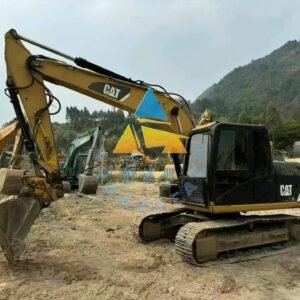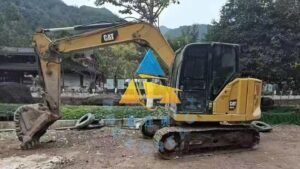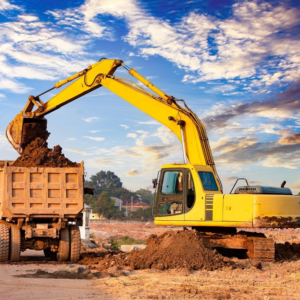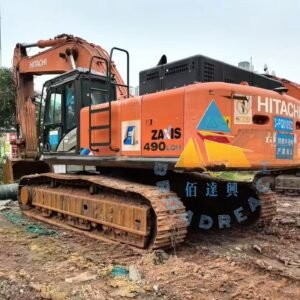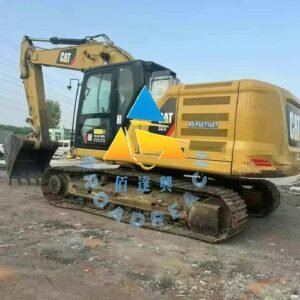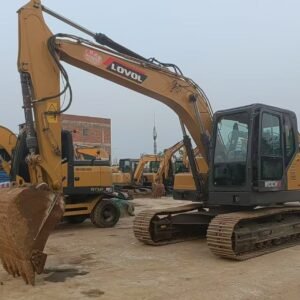BroadReach Construction Machinery Co., Ltd

Is It Worth Buying Used Construction Equipment? Key Factors to Consider
In the construction industry, the decision to invest in equipment is a significant one. With the allure of cost savings, many contractors and construction companies are often faced with the question: Is it worth buying used construction equipment? While there are certainly advantages to going the pre-owned route, there are also several key factors that need to be carefully considered before making such a purchase.
Poupança de custos
One of the primary reasons that makes buying used construction equipment an appealing option is the potential for substantial cost savings. Brand new heavy machinery can come with a hefty price tag, often stretching a company’s budget to its limits. For instance, a new state-of-the-art excavator can cost hundreds of thousands of dollars, which might be out of reach for smaller construction firms or those working on projects with tight financial constraints.
In contrast, pre-owned equipment typically comes at a much lower price point. You can often find a well-maintained second-hand excavator or loader for 30% to 50% less than its brand new counterpart. This significant reduction in upfront cost can free up funds that can be redirected towards other crucial aspects of the project, like hiring additional labor, purchasing better quality materials, or covering unforeseen expenses.
However, it’s important to note that while the initial purchase price is lower, you must also factor in the long-term costs associated with used equipment. This includes maintenance, repairs, and potential upgrades down the line, which we’ll explore further in the following sections.
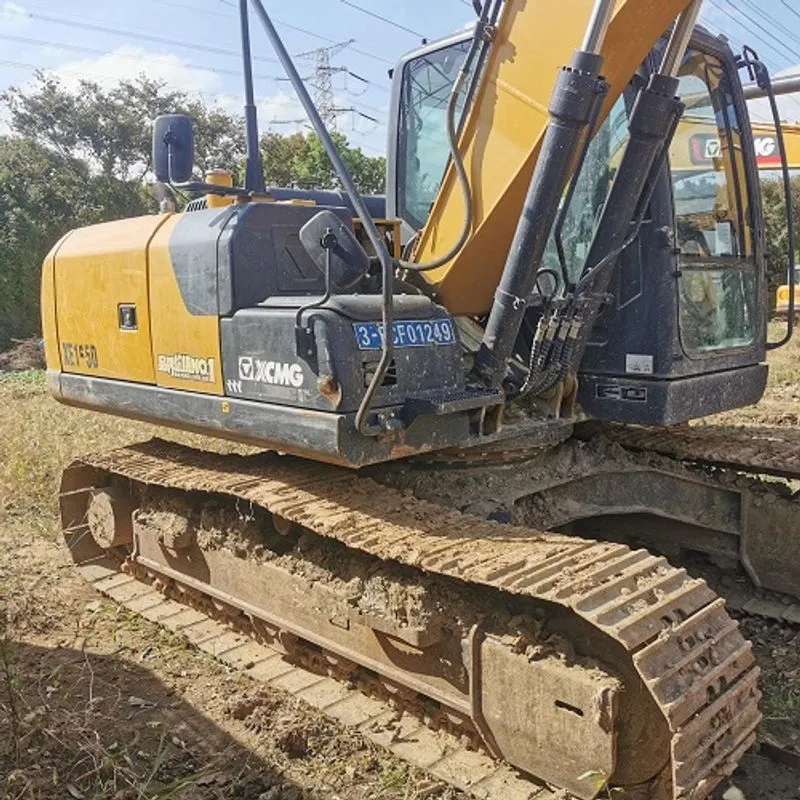
Equipment Condition
The condition of the used construction equipment is perhaps the most critical factor to consider. Just because it’s been used before doesn’t mean it’s a bad investment, but it does require a thorough inspection. A machine that looks fine on the outside might have hidden issues lurking beneath the surface.
When evaluating a pre-owned piece of equipment, it’s essential to have a professional mechanic or someone with expertise in that specific type of machinery conduct a detailed inspection. They should check the engine’s performance, the integrity of the hydraulic system, the wear and tear on moving parts like tracks or wheels, and the condition of the electrical components. For example, in a second-hand bulldozer, a worn-out undercarriage can lead to poor traction and stability, while a faulty hydraulic system can affect its ability to push heavy loads effectively.
Moreover, looking into the maintenance history of the equipment is equally important. If the previous owner has a record of regular servicing, timely oil changes, and prompt repairs of any issues that arose, it’s a good sign that the machinery has been well cared for and is likely to continue performing reliably. On the other hand, if the maintenance records are spotty or non-existent, it raises concerns about potential hidden problems that could surface after you’ve made the purchase.
Equipment Age and Technology
The age of the used construction equipment plays a significant role in determining its worth. Older machines might have a lower purchase price, but they could also come with outdated technology and higher maintenance requirements.
For example, an older pre-owned crane might lack the advanced safety features and precision controls that are standard in newer models. This could not only impact the efficiency of your operations but also pose a safety risk to your workers on the job site. Additionally, finding replacement parts for very old equipment can be a challenge, and when they are available, they might be more expensive due to limited production or discontinued models.
On the flip side, some older machines are known for their durability and simplicity. If it’s a classic model that has a reputation for being reliable and easy to maintain, and the technology it uses is still sufficient for your specific construction tasks, then age might not be as much of a deterrent. However, it’s crucial to balance the potential savings with the limitations that come with older used equipment in terms of technological advancements.
Resale Value
Considering the resale value of the used construction equipment is another aspect that shouldn’t be overlooked. Even if you plan to use the equipment for an extended period, circumstances could change, and you might need to sell it at some point.
Certain brands and models hold their value better than others. Well-known and reputable brands with a track record of reliability and good performance tend to have higher resale values. For instance, a second-hand Caterpillar loader might fetch a better price in the resale market compared to a lesser-known brand of similar age and condition. Also, equipment that has been well-maintained and has relatively low hours of usage will be more attractive to potential buyers.
By thinking about the resale value from the start, you can make a more informed decision about which pre-owned equipment to invest in. It might be worth paying a bit more upfront for a machine that has a higher likelihood of retaining its value over time, as it could save you from taking a significant loss when it comes time to sell.
Compatibility with Existing Equipment
In a construction operation, it’s often important to have equipment that works well together. If you already have a fleet of machinery and a specific workflow, buying used construction equipment that isn’t compatible can create inefficiencies and additional costs.
For example, if you use a particular type of attachment system for your loaders, purchasing a pre-owned loader with a different attachment mechanism means you’ll either have to invest in costly adapters or modify the machine to make it fit your existing setup. Similarly, the size and operating specifications of the used equipment should match the requirements of your job sites and the other equipment you use. A large second-hand excavator that’s too big to maneuver easily on a small construction site or one that has a different power source than your other machinery could cause logistical headaches and slow down your operations.
Availability of Parts and Service
The availability of parts and reliable service for the used construction equipment you’re considering is crucial. Since pre-owned machinery is likely to require repairs and maintenance over time, you need to ensure that you can easily get the necessary parts when something breaks down.
Some older or less common models might have parts that are difficult to source, leading to extended downtime while you wait for replacements. This can be costly in terms of lost productivity and potential delays in project completion. It’s advisable to research whether there are local suppliers or online marketplaces that stock parts for the specific make and model of the used equipment you’re interested in.
Likewise, having access to qualified service technicians who are familiar with that type of machinery is essential. A good network of service providers can quickly diagnose and fix issues, getting your pre-owned equipment back up and running in a timely manner.
Warranty and Support
While many new construction equipment purchases come with warranties and comprehensive support from the manufacturer, the situation is often different with used equipment. However, some dealers or sellers might offer limited warranties or after-sales support for the pre-owned machinery they sell.
This can provide an added layer of security when making a purchase. For example, a dealer might offer a 3-month warranty on a second-hand generator, covering certain major components. This gives you some peace of mind knowing that if something goes wrong within that period, you won’t be left footing the entire bill for repairs.
Even if there isn’t a formal warranty, understanding the level of support the seller is willing to provide, such as answering questions about the equipment’s operation or helping with minor troubleshooting, can be valuable.
In conclusion, buying used construction equipment can be a worthwhile investment if you carefully consider these key factors. It offers the potential for significant cost savings, but it also comes with its own set of challenges and risks. By thoroughly assessing the equipment’s condition, age, compatibility, resale value, and the availability of parts and support, you can make a more informed decision that aligns with your construction company’s needs and budget, ultimately determining whether it’s truly worth it to go for the pre-owned option.

